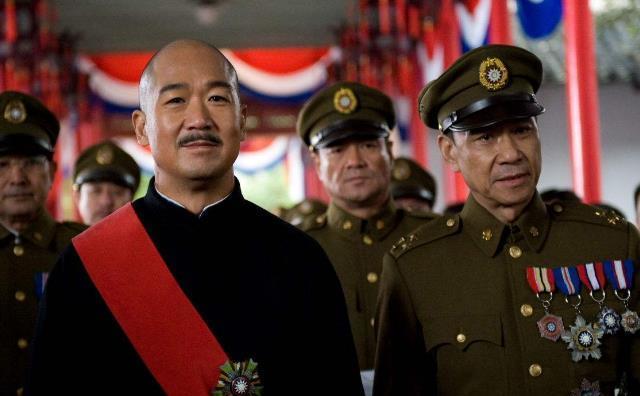Zhang Xueliang, as a young marshal of the Northeast Army, has always been committed to eliminating the impact of the civil war on the people, so that the whole country can rest and recuperate from the suffering of war, and it is precisely for this reason that he led the Northeast Army into the Customs Mediation during the Central Plains War in 1930, and finally prevented an imminent civil war.
After the "918" incident, Zhang Xueliang's Northeast Army was arranged to encircle and suppress the Red Army in Shaanxi, Zhang Xueliang was very dissatisfied with this arrangement, and finally could only launch the Xi'an Incident and adopt the method of "military advice" to force Chiang Kai-shek to resist Japan, and finally the Xi'an Incident became resolved peacefully, and Chiang Kai-shek finally agreed to stop the civil war and unite with the outside world.

Brutally imprisoned
Zhang Xueliang made great contributions to the achievement of the anti-Japanese national united front, but he himself was detained for escorting Chiang Kai-shek back to Nanjing, after which Zhang Xueliang was tried, initially sentenced zhang Xueliang to ten years in prison, and under the mediation of Soong Ziwen, Chiang Kai-shek signed an amnesty order pardoning Zhang Xueliang's punishment.
However, Zhang Xueliang still lost his freedom and was secretly placed under house arrest by Chiang Kai-shek, although Zhang Xueliang still did not choose to give up in the face of such an encounter, he firmly believed that he would be released one day, as long as the War of Resistance was victorious, Chiang Kai-shek had no reason to detain himself again, and Chiang Kai-shek did find Zhang Xueliang after the victory of the War of Resistance.
Secret meetings
During the War of Resistance Against Japanese Aggression, Zhang Xueliang repeatedly changed places of house arrest, but he was convinced that he would be released, and Zhang Xueliang, who was imprisoned in Guizhou in January 1946, was notified to go to a villa in Guiyang, although Zhang Xueliang did not know what was happening, but had a vague premonition that he was about to be released.
At that time, the victory of the War of Resistance against Japanese Aggression was about to form a coalition government, and the heads of many factions hoped to release Zhang Xueliang, after all, he was a hero who promoted the national united front, plus ten years of imprisonment was about to expire, there was no reason to secretly detain Zhang Xueliang again, and Chiang Kai-shek was forced by external pressure to respond that he and Zhang Xueliang "love father and son, not detain Zhang Xueliang." Under these pressures, Chiang Kai-shek secretly met with Zhang Xueliang in April 1946.
Three conditions for freedom
After the victory of the War of Resistance Against Japanese Aggression, Zhang Xueliang's mood was extremely excited, and he often planned the future with Miss Zhao Si, who accompanied him, and in April Zhang Xueliang and Chiang Kai-shek met in Qianling mountain park, nearly ten years after the Xi'an Incident, Chiang Kai-shek put forward three conditions for Zhang Xueliang, if Zhang Xueliang can do it, he will be free.
The first is to make Zhang Xueliang admit that the Xi'an Incident was in Yan'an, the second is to hand over all the assets left by Zhang Zuolin in the northeast to the state government, and the third is to stay overseas after freedom. Zhang Xueliang could not satisfy Chiang Kai-shek with these three conditions, because first: the Xi'an Incident was decided by him and Yang Hucheng through consultation, and even the subordinates of the Northeast Army did not know it, let alone yan'an.
Second: Although the amount of inheritance that Zhang Zuolin handed over to him was huge, Zhang Xueliang wanted to use this to care for the bereaved families of the fallen Soldiers of the Northeast Army, so he wanted to give these things to Zhang Zuoxiang and others to handle with full authority; third: Zhang Xueliang very much wanted to return to his homeland and did not want to live overseas and could not return to China, so Zhang Xueliang could not agree to these three conditions.
After Chiang Kai-shek was rejected, he sent officers from the northeast to persuade Zhang Xueliang, but Zhang Xueliang still refused, and then Chiang Kai-shek transferred Zhang Xueliang's detention place from Chongqing to Taiwan, and began forty-three years of unjustified imprisonment, and did not release Zhang Xueliang after Chiang Kai-shek's death during Chiang Ching-kuo's death.
By the time Zhang Xueliang regained his freedom, it was already 1990, when Zhang Xueliang was 90 years old, and fifty-three years of imprisonment made Zhang Xueliang change from a spirited young marshal to an old man with white hair.